Buda & Pest
- Tom Aijian
- Nov 10, 2022
- 11 min read

I’ve been fighting a nasty cold for a week now. Such is the cost of adopting wounded soldiers at Oktoberfest. Forgive the graphics but my respiratory cold migrated to my eye (which I wasn’t aware it could do) and resulted in an infection. An hour before we bordered our train to Budapest, we visited the closest pharmacist who “inofficially” sent me on my way with antibiotic eyedrops. At Vienna central station, we found ourselves with no more than 7 minutes to board our train. Hastily, we viewed the electronic schedule posted on the monitors within. Without time to question the instance, I followed Savannah who saw the word Budapest and sang out, “Platform 8!”. We sprinted down the corridor and up the stairs. We hustled on board and elbowed our way to separate seats. I placed our plethora of bags in the overhead compartments and only after allowing myself a breath, noticed that Savannah was disputing her seat with another passenger. “It says here that I’m seat 109”, she stated politely. “No, No. 109. See?”, the woman replied in her best English. Heaven sent, the reality of the situation dawned on me. “Is this the train to Budapest?”, I asked aloud and to no one in particular. “No.”, an elderly English woman replied. “This train came from Budapest and is headed to Munich”. The train wheezed the kind of breath that indicates its departure. “We’re on the wrong train!”, I announced more to myself than anyone. “We’ve got to get off this train!”. With 30 seconds to spare before accepting our fate, we stole back our bags and fought our way to the platform once more.
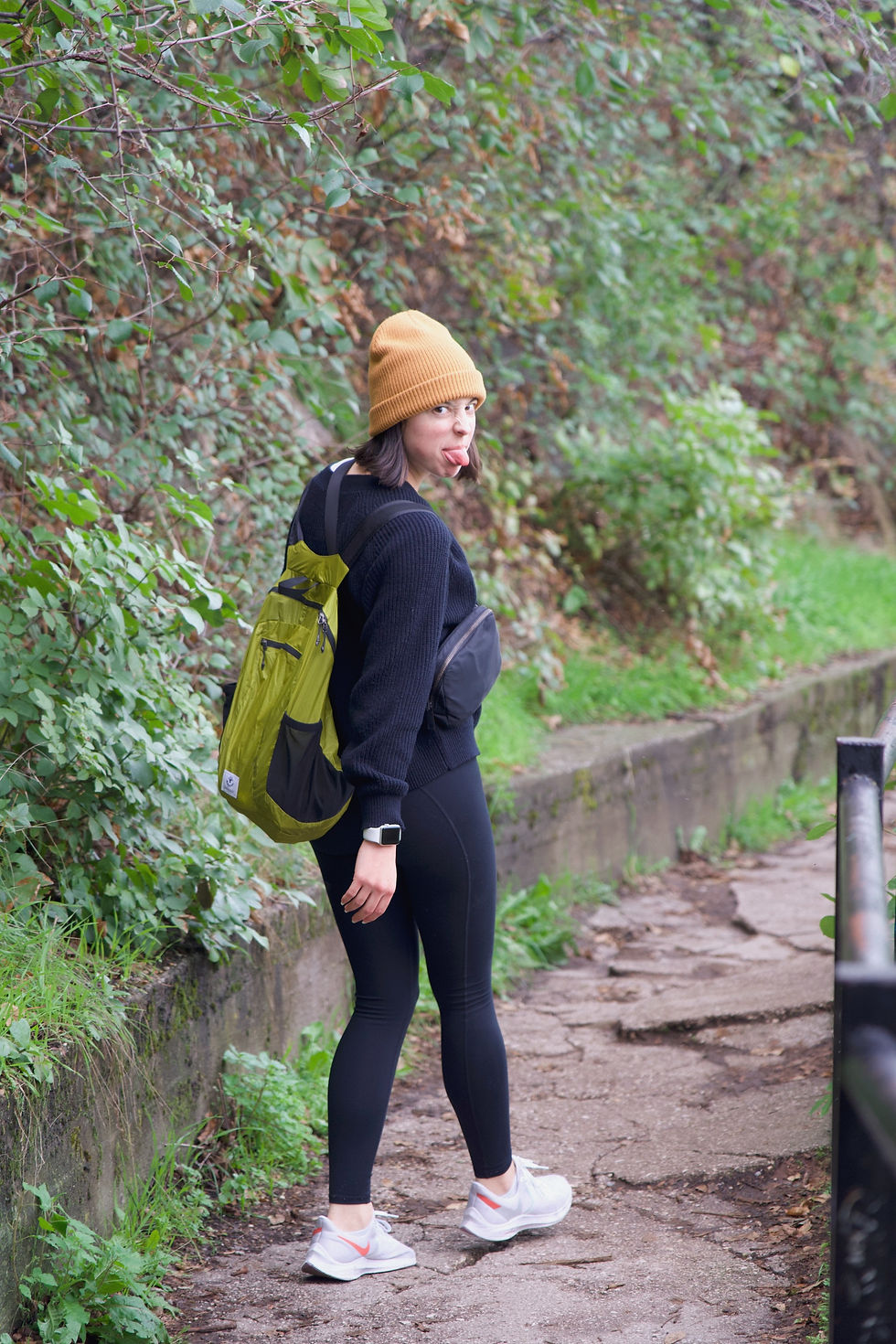
Outside, I took a second breath, elated that we hadn’t traveled 5 1/2 hours in the wrong direction when Savannah informed me that our actual train left in two minutes. Apparently, *we* saw the word Budapest and failed to translate and distinguish “Arrivals” from “Departures”. Leaping into action, we fell back into our all too familiar panicked sprint. With seconds to spare, we identified the correct platform and hopped aboard the Regiojet to Budapest as it too wheezed to life. A conductor practically pushed us aboard. 3 cars back, we tarried with a group of other confused travelers as the doors to our assigned train car refused to open. After thirty minutes or so we wrestled them apart and proceeded to our actual seats on our intended line. For the first half of the journey, I sat about 9 rows behind Savannah, who was busy holding court with the passengers around her. While she made polite introductions and solicited advice from those familiar with our destination, the noticeably silent girl beside me made every effort to scowl judgingly into my one bloodshot eye. Eventually, she left. Whether she had arrived at her stop or could no longer stand the sight of me, I don’t know. Savannah took her place for the rest of the trip, which awarded me some social credit because she was clearly popular with the rest of the cart. En route to Hungary, we were entirely uncertain about what to expect from Budapest, and if it would be worthwhile. Vienna fell just short of our combined expectations and we wondered if we were wasting time going this far east. The train squealed to a stop. “Where on Earth are we and what have we done?”, I thought as I processed the reality that we needed to navigate an entirely new language and currency. The German we picked up would not help us here, and neither would the euros. Trying my best to discern the signage around us, we might as well have been plopped in the middle of Turkmenistan. I felt like a foreign man in a foreign land. But, make no mistake… I was wholeheartedly wrong. Never have I been to a city as delightful as Budapest. I’m certain I will say this again, but at the time of writing, It’s been our favorite stop thus far.
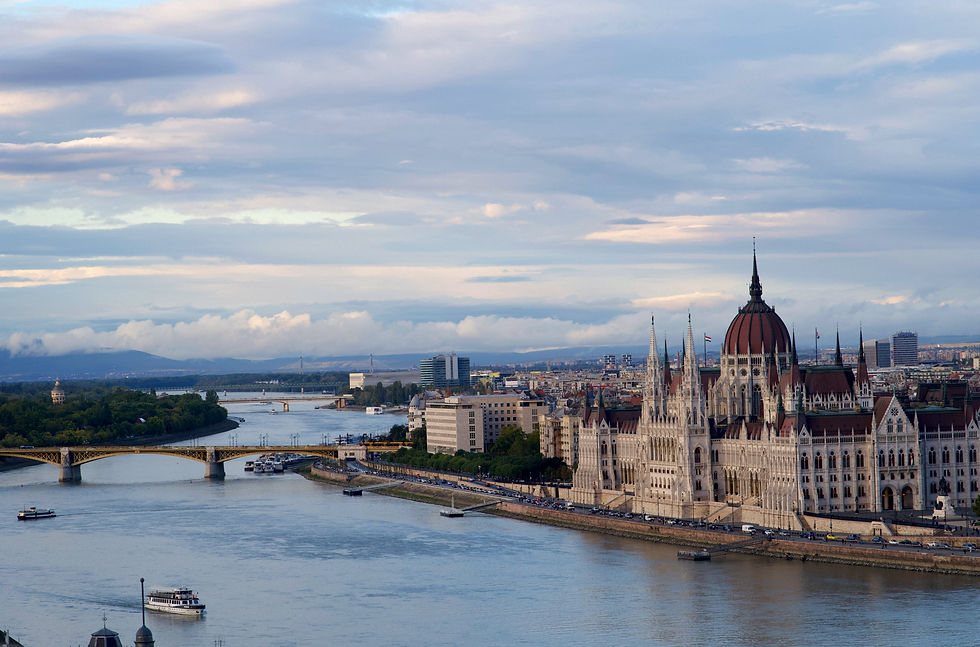
Like pack mules, we lugged our belongings across Liberty Bridge (I guess that’s why it’s called luggage). Liberty Bridge dawns the same shade of green as our US-based statue which bears a similar name, but despite being built less than a decade apart, shares no relation. On the Buda side, one finds the Cave Church carved into the side of Gellért Hill. By every measure, it is a physical hole in the wall. Although it houses a relic of St. Paul, it’s known as St. Ivan’s after the hermetic Pauline monk who claimed to heal the sick using the hill's thermal springs. On the Pest side, the historic Central Market Hall remains open to shoppers in pursuit of fresh produce, spices, and the like. It is the oldest of its kind in the country.
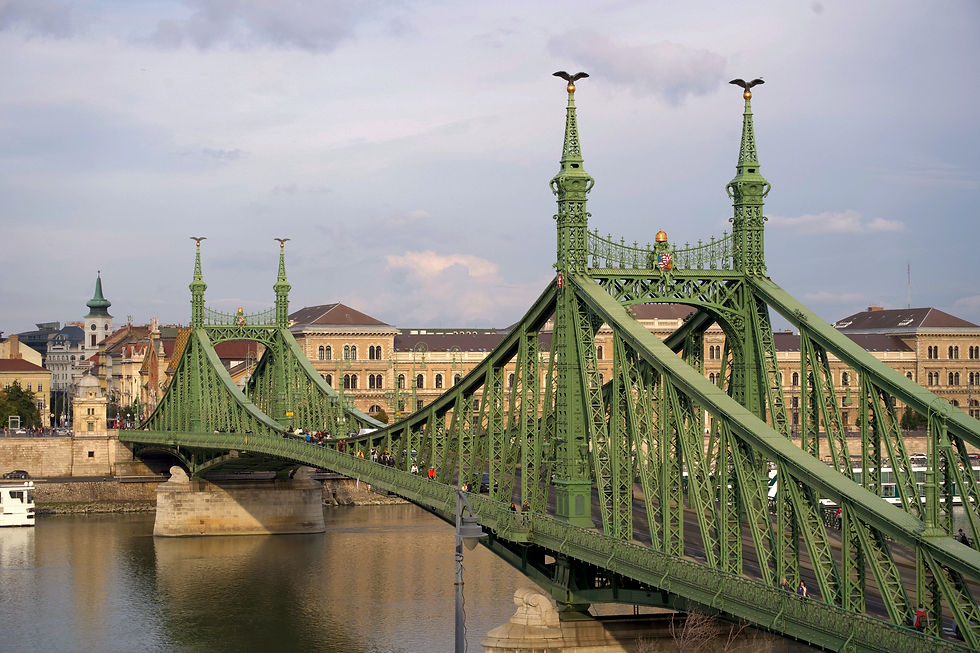
Ideologically, the city and its “Budapesters” are more relaxed than its Western European counterparts. As Julien, our Hostel host affectionately described it, “You know how in the classroom there are the kids who sit at the front and answer questions, while others stay towards the back near the heaters? The ones near the back are the Hungarians. When Europe goes one way, Hungary goes the other. We are a bit contrarian that way, you see.” All in all, the word bohemian comes to mind. Although true Bohemia would come next. As Julien showed us to our private room a few blocks walk, he pointed out the notable and potable. Along the way, we passed the world's second-largest synagogue and a library whose annual fee costs 300 Forints a year—the US equivalent of 50 cents. If knowledge is power then power is cheap in Hungary. Settling in as temporary tenants, we enjoyed a substantial uptick in conditions. The common space connected to our private room provided all the comforts of home one could hope to share with complete strangers. With each step the hardwood floors squealed like banshees and the walls were paper thin. Still, we lived in relative luxury for 33 euros a night. The location was both central and secluded and featured a lovely view of something called Bolt Sex Shop. Rid of our things, we visited the Central Market Hall to drink in the view of the river and find a quick bite. After crossing back over Liberty Bridge, we summited Gellért Hill to peer out over that corner of Buda and all of Pest. We unwittingly stumbled upon The Citadella—a key point in the city’s history of occupation by foreign powers and a lasting symbol of freedom. As we paraded about the hills and circled back for the evening, we discovered the towering statue of St. Gerard that gazes over the city permanently as we did for but a moment. Beneath him the internal waters of the hill fall into a basin, the mist of which veils passersby—and if St. Ivan was right, cures all that ales them.
Day 2
While our lodging is particularly nice for 33 euros a night, there are elements of it that could use a bit of attention. A lesser man would hone in on these minor inconveniences and allow them to damage his experience. Not I. With each step, the timeworn floorboards cried out as if the nails intended to hold them down rested upon the bare backs of howler monkeys who lay prostrate beneath every plank. In our restroom, the shower head hung loose and low on its busted adjustment rod, ensuring that its water shot directly into the eye of your belly button. After a few moments of hunchbacked bathing, I repurposed a length of dental floss into a suspension system that was altogether slipshod and functional. At that moment it dawned on me that should I raise concern about any of my perceived maladies, the hostel host could just as fairly reply, “Yes, sir, we understand your situation, but might I remind you that you’re paying 33 euros a night” and I would have no other option than to agree with him. On any other morning, a broken showerhead would only be a minor inconvenience, but this wasn’t any other morning.
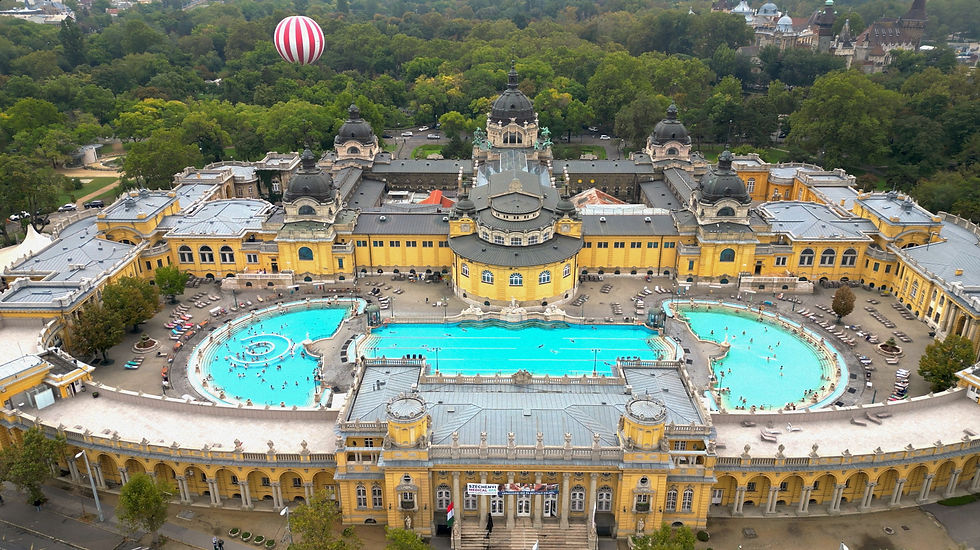
Today, we began our adventures with a trip to the Szechenyi Bath House— a place where natural hot springs fill the early morning air with plumes of steam, and a shower before entering is required. The facility opens as early as 7. As we were informed by locals, attending in the earlier hours of the day helps one avoid the droves of millennials who plague the place with pictures and poses. Despicable. Those millennials were sure to ruin all the photos we aimed to take! By 8 we took our first steps into the spring that most bath-goers (bathers?) suggest you start in before working your way to the warmest one.

Mind you, the water was not at all cold, but precisely the temperature of a neglected motel hot tub: warm enough to sit in comfortably, but not so much to provide the satisfaction its name suggests. Of course, in this case, the starting pool’s temperature is intended, and apart from the stigma one may associate with traditional public baths, it was nothing but pristine. No screaming children. No mysterious black surface marks encompassing the perimeter of the tiles. No floating bandaids or stray hairs. No worries in the world. For about an hour, Savannah and I were the youngest people in sight by what seemed like 45 years. Keep in mind, the steam from the pools is so dense and voluminous that you can hardly see more than a dozen feet in front of you. We were in great company among our elderly counterparts who shared the space.

Our differences in age evaporated as we circumnavigated the whirlpool with smiles plastered across our faces. We took turns switching between the several spouts positioned around to massage our bad backs with a variety of water pressures. In one instance, myself and a bald stranger stood five feet apart beneath the same waterfall with our eyes closed contently. We must’ve been there for twenty minutes before parting ways without exchanging a single word. He may very well be my new best friend.

As the sun decided to come out, so too did the millennials we were warned about.
With our space crowded, our muscles relaxed, and our fingertips sufficiently wrinkled, we dried our skin in the hopes of finding a place to wet our whistles. Bopping around the streets in search of good Hungarian food, we struggled to remember the names of restaurants that we so confidently swore we’d remember. We didn’t want to accidentally squander our authentic restaurant experience on some insignificant cafe, so we turned tail to the very establishment that denied us entry just the night before— The For Sale Pub.
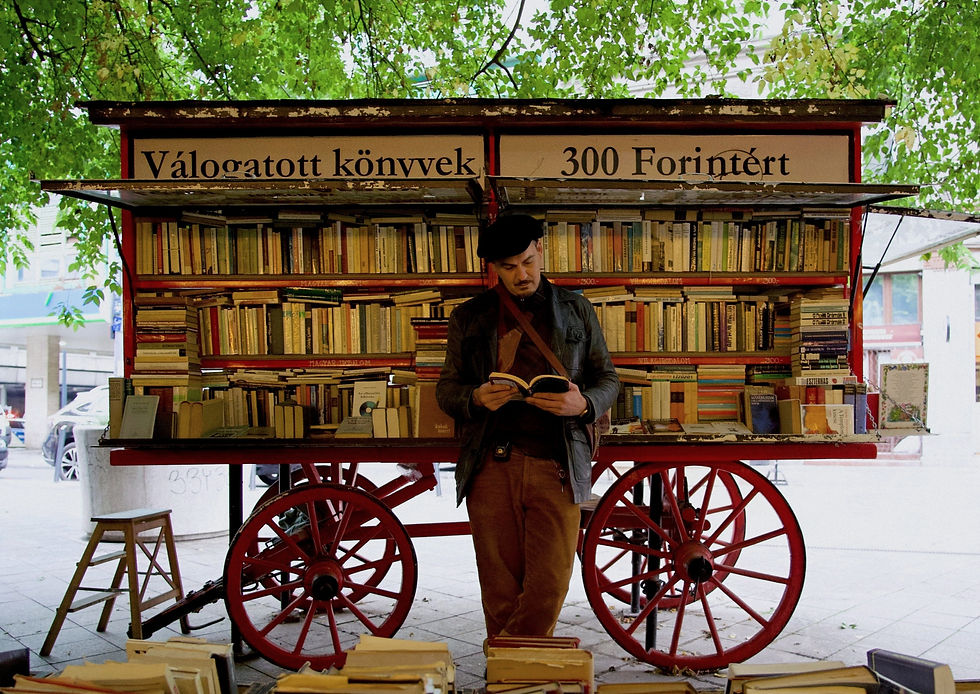
Halfway between here and there, we took a beat to appreciate one of my favorite idiosyncrasies of Budapest. Every few blocks, red wooden wagons sit horseless and flaps ajar for locals to peruse a curated selection of used books. True, most of them were written or translated into the languages of the region, but that made no difference in my want to take one along. For a few cents I purchased my first souvenir: an illustrated copy of Jules Verne’s most popular works. “Nemo Kapitány” the cover read among illustrations from Journey to the Center of the Earth and others of the same rank.
As I went to pay, I struck up a conversation with the gentleman in charge. His name was Joe Whitman. I asked Joe about his stock of books as he bounced around the wagon flipping through the titles he’d chosen himself. “Ah, The Odyssey! Unfortunately, no, but a great story”, he’d say with a wide grin. “I don’t have Old Man and the Sea either. Sorry. A Farewell to Arms, perhaps?” Here was a man whose work interweaves with his passion, his view on life, and his aesthetic completely. He dawned a well-groomed goatee and mustache, a brown leather turtleneck vest, a tweed flat cap, stormtrooper boots, a bracelet on each wrist, two crisscrossing sling bags, corduroy trousers rolled at the cuffs, and a black leather jacket that he “found on the street”. When I pointed out the zippo holster worn fashionably on his front, he explained how he’d purchased two broken lighters and combined their parts into a functioning one. I inquired about what he was reading at the moment, and as it turns out, we are both in the middle of the same book. He recommended a few of his favorite works and spoke about them with the same affection that parents employ when discussing their children. “I’d venture a bet you’re a bit of a poet, Joe Whitman”, I said.
“I am” he announced proudly as many don’t. “I’ve written a piece in English recently. Would you like to see it?” Naturally, I couldn’t resist. What kind of a slap in the face would it be to say no, anyhow? The piece was punchy and deep, despite having been composed in Joe’s fourth strongest language. It read:
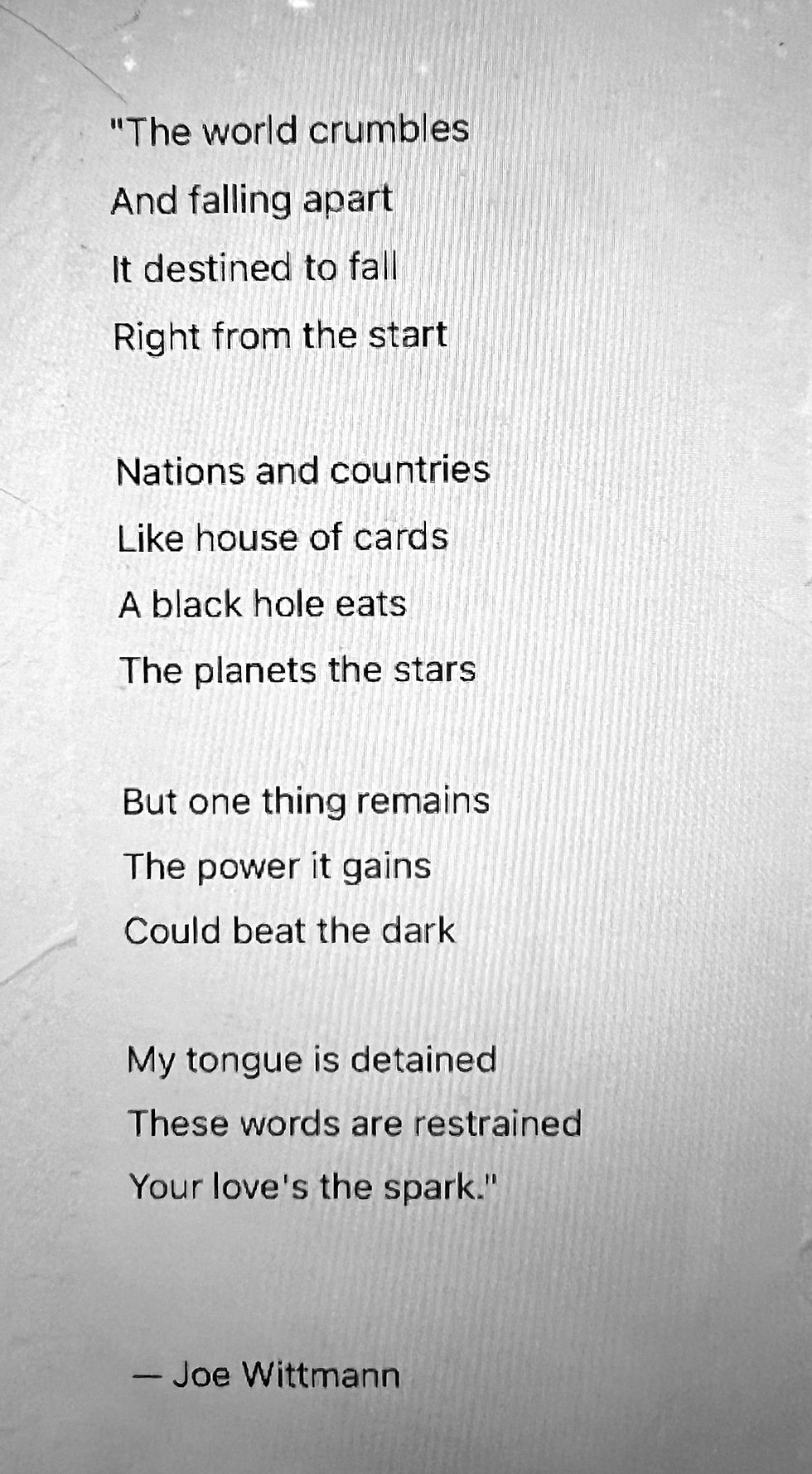
He discussed his love for the arts, rattled off every instrument he can play, and warned us about the soul-sucking work of writing for anyone other than yourself. “Now, no one can tell me what I can and can’t say. I can write whatever I feel.” And if there’s one thing I learned about Joe from that brief encounter… he feels. Knowing that each additional book carried with it the consequence of its own weight, I purchased only the one, our stomachs now rumbling.
Before we non-figuratively get into the meat of things, it’s important to note that there is a sign in front of The For Sale Pub that simply states “World's Best Goulash Soup”.

Now, I’ve heard the term before, but prior to that meal, I couldn’t tell you a goulash from babaganoush. Goulash soup? Lord only knows what that means. World's best? Weird brag. If you pass by For Sale Pub and blink you will actually miss what makes it such an outlier among the other establishments in town. The door was usually cracked and the inside dark, but every so often you’d see someone stop dead in their tracts to gander at the billows of parchment that blanketed the inside. Upstairs and down, every discernible inch of wood that could hold a tack did so in addition to the scrawled writings of those who pinned them there. Also, peanuts. Peanuts everywhere. On every table, at the bar, and on the ground. Waiting in eager anticipation of the For Sale Pub’s legendary goulash soup and pork rib platter, it was impossible not to sit transfixed by the deconstructed anthology that enveloped us.
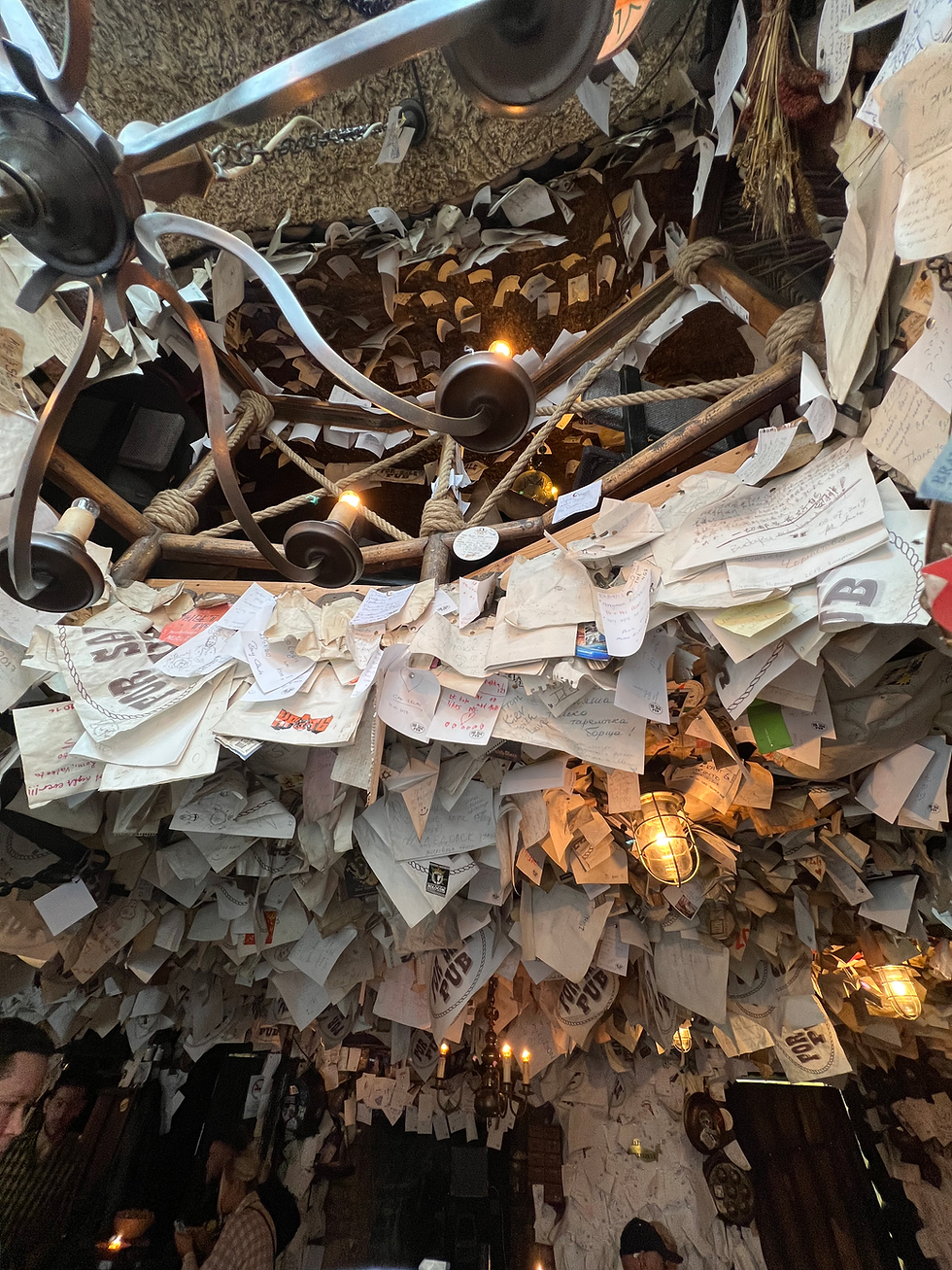
Recountings of events from a thousand different days, advice, love letters, hate letters, poems, lyrics, and epitaphs on long-gone memories hung from above in more languages than one could recognize. With time, each one had turned its own unique hue of white, yellow, and orange backlit by the few dim bulbs that glowed the way Christmas lights do among heaps of freshly fallen snow. The waitress brought over a free lager (as is customary when someone orders the pork ribs) because “it would take about twenty minutes or so to cook”. I think back on the times when I’ve waited twenty minutes or more for food to arrive, and how many lagers I’m owed. Our goulash soup was not far behind and arrived in a steaming ceramic pot the size of your head. Beside it, a jar of homemade paprika jam. Even before the entree, we knew this would be one of our more memorable meals. It may have been my first goulash, but by my account, the title of world's best was well deserved. It was a perfect meal for what became our rainy day. Just when we thought we couldn’t eat another bite, the pork ribs arrived. From the size of them, it looked as though they’d been harvested from a dinosaur, and whatever happened in the twenty minutes of their preparation made the meat slide from the bone with the slightest knock of a fork.
We feasted like Nordic kings on the eve of battle, read like Rhodes scholars, and dreamt up what contributions we would leave in this inverted library as a legacy of our time there. Pictured below are the messages we managed in the time after our meal and before the check.
The rain we hoped to avoid came down on top of us with a vengeance as we waited for our bus to the city’s Castle District. For a moment we toyed with the idea of trading that afternoon’s activities for a roof and dry socks. Our better selves won out and we were rewarded for it. As we stepped off the bus in Buda, the clouds parted to reveal whatever warmth the late afternoon sun had left to give. Walking through the streets, we pointed out statues and depictions of important figures, made up ludicrous names for them, and picked apart a local treat called chimney cake, ring by ring. Imagine monkey bread cooked into a spiraling cylinder that unravels as you tear from it. There was a quiet peace around the Castle District which rests in the same hills as the Citadella we hiked to the day before. It may have just been the aftermath of a gloomy day, but a somber silence hung over the space between Buda Castle and Matthias Church. Here is a city whose past interweaves with its present, its people, and its aesthetic completely.











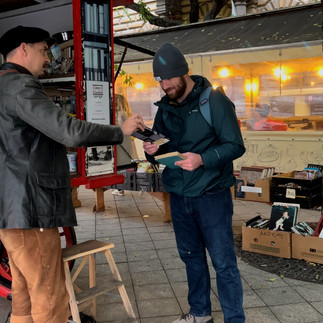



























Comments